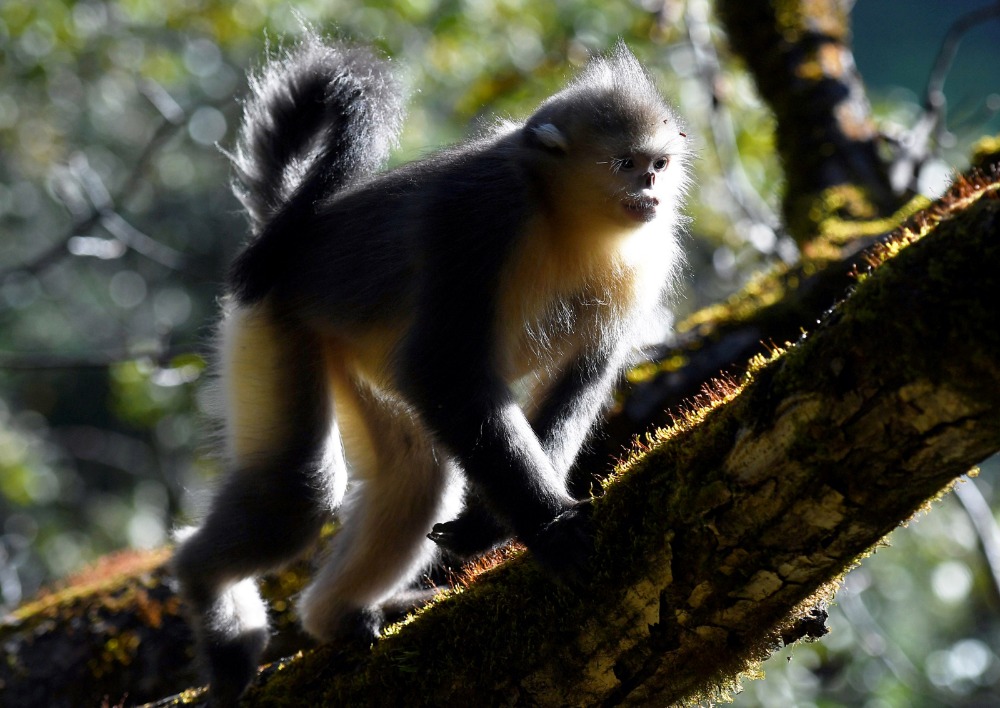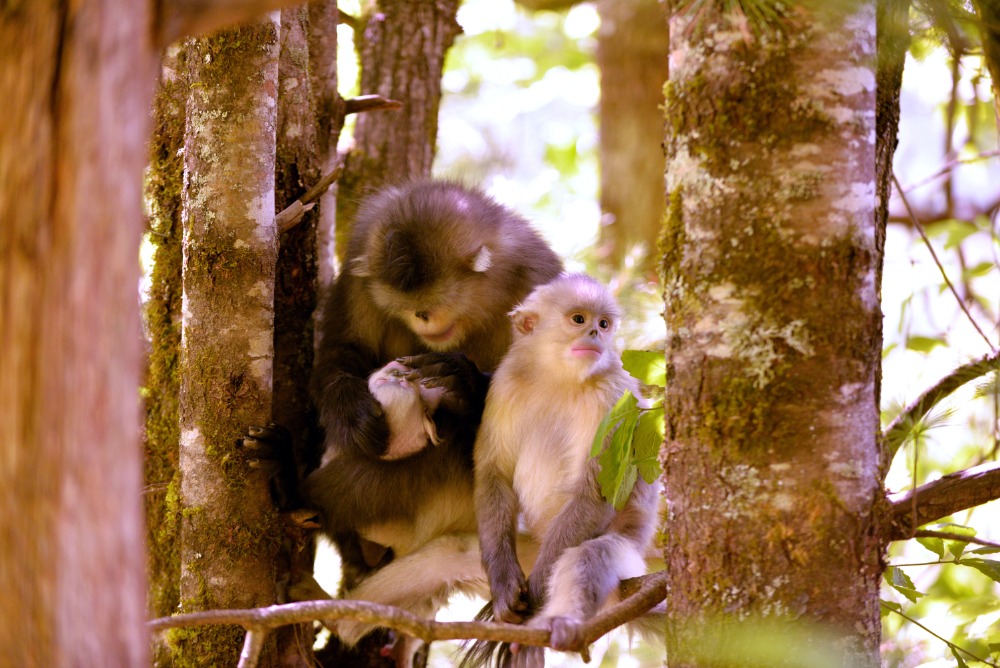
A Yunnan golden hair monkey is seen at Baima Snow Mountain Nature Reserve in Deqen Tibetan Autonomous Prefecture, southwest China's Yunnan Province. (Xinhua/Wang Changshan)
KUNMING, July 5 (Xinhua) -- Chinese researchers have been extracting and monitoring the DNA from more than 3,000 fecal samples of the black-and-white snub-nosed monkeys, also known as Yunnan golden hair monkeys, to research the species' living conditions, according to the Baima Snow Mountain National Nature Reserve of southwest China's Yunnan Province.
The research, starting from 2017, focuses on the genetic diversity, monkey groups' relations and structures and gene exchange, in order to investigate the Yunnan golden hair monkeys' living condition and degree of endangerment.
The researchers will estimate the monkey groups' quantity and size, divide the protection units, evaluate the monkeys' habitat condition and provide data to figure out protection solutions, said Yu Li, researcher of the State Key Laboratory for Conservation and Utilization of Bio-Resources in Yunnan.
Yu also promised to construct a comprehensive DNA molecular marker database for the Yunnan golden hair monkeys.

Yunnan golden hair monkeys are seen at Baima Snow Mountain Nature Reserve in Deqen Tibetan Autonomous Prefecture, southwest China's Yunnan Province, May 29, 2019. (Xinhua/Zhang Dongqiang)
One of the world's most endangered primates, the Yunnan golden hair monkey is considered a bellwether species for biodiversity in the high-altitude region.
Local poachers drove them close to extinction in the 1980s, but the number has since risen above 3,500 nationally thanks to the joint efforts of governments, researchers and local villagers.
The monkeys live in the mountainous forests in Yunnan and neighboring Tibet Autonomous Region, with most in the Baima Snow Mountain National Nature Reserve, which was established in 1983 and added to the list of national-level nature reserves in 1986.
The Yunnan golden hair monkeys were listed as national first-class rare and endangered protected species in China and as vulnerable on the International Union for Conservation of Nature (IUCN) Red List, said Long Yongcheng, chief scientist of the Society of Entrepreneurs and Ecology (SEE) Southwest Project Center.
The research was cooperated by Forestry and Grassland Administration of Yunnan Province and SEE Southwest Project Center, and jointly conducted by eight professional organizations like Chinese Academy of Forestry, Yunnan Baima Snow Mountain National Nature Reserve and Yunnan University.



